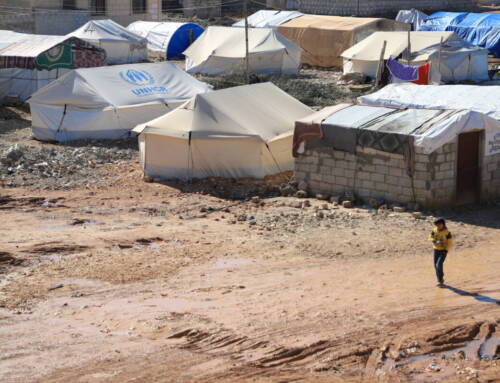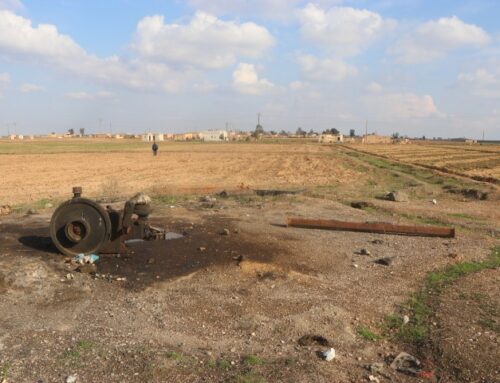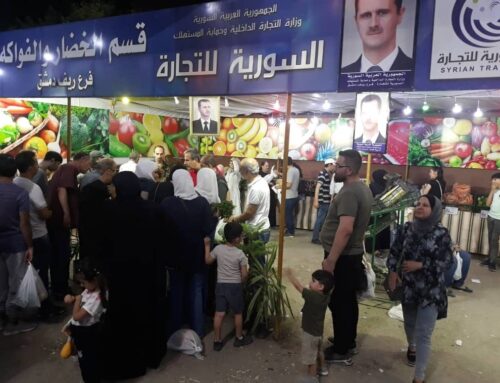After Marj: Calculating the loss of East Ghouta’s farmland
East Ghouta lost the majority of its agricultural territory last […]
24 May 2016
East Ghouta lost the majority of its agricultural territory last Thursday, when a lighting advance by the Syrian army and ally Hezbollah captured most of the rebel-held suburbs’ southern Marj region, home to 40 square kilometers of wheat fields and orchards.
That farmland was planted with wheat, barley, apricots and peaches, among other crops, Abu Karam a-Shami, a spokesman for the Outer Damascus Provincial Council, tells Syria Direct’s Noura Hourani, estimating the financial loss at $41 million.
“People have depended on wheat and fruit trees to face the hunger and blockade,” says a-Shami. With most of the arable land gone, “Ghouta will suffer from a shortage of food.”
Q: How much territory did East Ghouta lose? Can you estimate the material scale of the loss? Did you sell wheat to areas outside Ghouta?
Ghouta lost an estimated 40,000 dunams [approx. 40 square kilometers] of farmland planted with wheat and barley, as well as orchards with fruits such as apricots and peaches.
The value is estimated at around SP9 billion [approx. $41 million]. Each dunam of farmland produces around 500 kilograms of wheat.
Wheat isn’t sold outside Ghouta. It is stored as a reserve and only sold in internally.
Q: What impact will the loss of Marj have, given that East Ghouta is under a blockade?
It will negatively impact residents’ living conditions, and prices will increase. Ghouta will suffer from a shortage of food, especially since wheat is a fundamental commodity.
East Ghouta has been blockaded for four years, and people have depended on wheat and fruit trees to face the hunger and blockade imposed upon them.
Q: What steps will you take to lessen the severity of the damage?
We don’t have any outlet to buy wheat from outside Ghouta, but there are still some towns in East Ghouta that have fields of wheat and can be depended for the moment. But they’re not enough, there are too few of them.
For that reason, we’ll try to bring in wheat from outside, through the tunnels if necessary.
Q: What about the Marj residents who fled and left their homes and land?
The local councils, organizations and shelter offices in central Ghouta are working urgently to take care of the families who fled there after the latest attack.







